第84章
And now, again, he resumed his wanderings in the woods andfields. It might be fancied that the bright butterfly, which hadcome so spiritlike into the window, as Owen sat with the ruderevellers, was indeed a spirit, commissioned to recall him to thepure, ideal life that had so etherealised him among men. It might befancied, that he went forth to seek this spirit, in its sunnyhaunts; for still, as in the summer-time gone by, he was seen to stealgently up, wherever a butterfly had alighted, and lose himself incontemplation of it. When it took flight, his eyes followed the wingedvision, as if its airy track would show the path to heaven. But whatcould be the purpose of the unseasonable toil, which was againresumed, as the watchman knew by the lines of lamp-light through thecrevices of Owen Warland's shutters? The townspeople had onecomprehensive explanation of all these singularities. Owen Warland hadgone mad! How universally efficacious- how satisfactory, too, andsoothing to the injured sensibility of narrowness and dullness- isthis easy method of accounting for whatever lies beyond the world'smost ordinary scope! From Saint Paul's days, down to our poor littleArtist of the Beautiful, the same talisman had been applied to theelucidation of all mysteries in the words or deeds of men, who spokeor acted too wisely or too well. In Owen Warland's case, thejudgment of his townspeople may have been correct. Perhaps he was mad.
The lack of sympathy- that contrast between himself and his neighbors,which took away the restraint of example- was enough to make him so.
Or, possibly, he had caught just so much of ethereal radiance asserved to bewilder him, in an earthly sense, by its intermixturewith the common day light.
One evening, when the artist had returned from a customaryramble, and had just thrown the lustre of his lamp on the delicatepiece of work, so often interrupted, but still taken up again, as ifhis fate were embodied in its mechanism, he was surprised by theentrance of old Peter Hovenden. Owen never met this man without ashrinking of the heart. Of all the world, he was most terrible, byreason of a keen understanding, which saw so distinctly what it didsee, and disbelieved so uncompromisingly in what it could not see.
On this occasion, the old watchmaker had merely a gracious word or twoto say.
"Owen, my lad," said he, "we must see you at my house tomorrownight."The artist began to mutter some excuse.
"Oh, but it must be so," quoth Peter Hovenden, "for the sake of thedays when you were one of the household. What, my boy, don't youknow that my daughter Annie is engaged to Robert Danforth? We aremaking an entertainment, in our humble way, to celebrate the event.""Ah!" said Owen.
That little monosyllable was all he uttered; its tone seemed coldand unconcerned, to an ear like Peter Hovenden's; and yet there was init the stifled outcry of the poor artist's heart, which hecompressed within him like a man holding down an evil spirit. Oneslight out-break, however, imperceptible to the old watchmaker, heallowed himself. Raising the instrument with which he was about tobegin his work, he let it fall upon the little system of machinerythat had, anew, cost him months of thought and toil. It wasshattered by the stroke!
Owen Warland's story would have been no tolerable representation ofthe troubled life of those who strive to create the Beautiful, if,amid all other thwarting influences, love had not interposed tosteal the cunning from his hand. Outwardly he had been no ardent orenterprising lover; the career of his passion had confined its tumultsand vicissitudes so entirely within the artist's imagination, thatAnnie herself had scarcely more than a woman's intuitive perception ofit. But, in Owen's view, it covered the whole field of his life.
Forgetful of the time when she had shown herself incapable of any deepresponse, he had persisted in connecting all his dreams ofartistical success with Annie's image; she was the visible shape inwhich the spiritual power that he worshipped, and on whose altar hehoped to lay a not unworthy offering, was made manifest to him. Ofcourse he had deceived himself; there were no such attributes in AnnieHovenden as his imagination had endowed her with. She, in the aspectwhich she wore to his inward vision, was as much a creation of hisown, as the mysterious piece of mechanism would be were it everrealized. Had he become convinced of his mistake through the medium ofsuccessful love; had he won Annie to his bosom, and there beheld herfade from angel into ordinary woman, the disappointment might havedriven him back, with concentrated energy, upon his sole remainingobject. On the other hand, had he found Annie what he fancied, his lotwould have been so rich in beauty, that out of its mere redundancyhe might have wrought the Beautiful into many a worthier type thanhe had toiled for. But the guise in which his sorrow came to him,the sense that the angel of his life had been snatched away andgiven to a rude man of earth and iron, who could neither need norappreciate her ministrations; this was the very perversity of fate,that makes human existence appear too absurd and contradictory to bethe scene of one other hope or one other fear. There was nothingleft for Owen Warland but to sit down like a man that had beenstunned.
He went through a fit of illness. After his recovery, his small andslender frame assumed an obtuser garniture of flesh than it had everbefore worn. His thin cheeks became round; his delicate little hand,so spiritually fashioned to achieve fairy task-work, grew plumper thanthe hand of a thriving infant. His aspect had a childishness, suchas might have induced a stranger to pat him on the head- pausing,however, in the act, to wonder what manner of child was here. It wasas if the spirit had gone out of him, leaving the body to flourishin a sort of vegetable existence. Not that Owen Warland was idiotic.